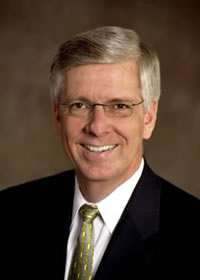Al Stubblefield
Al Stubblefield was a notable figure in the field of healthcare management and leadership, particularly recognized for his contributions to improving patient satisfaction and employee engagement within healthcare settings. His work has been influential in shaping modern healthcare management practices, emphasizing the importance of creating a positive organizational culture to enhance the overall quality of care.
Early Life and Education[edit | edit source]
Al Stubblefield's early life laid the foundation for his future career in healthcare management. Born and raised in a family that valued community service and healthcare, Stubblefield was inspired from a young age to pursue a career that would allow him to make a significant impact in the lives of others. He pursued higher education in a field related to healthcare management, although specific details about his early educational background remain general.
Career[edit | edit source]
Stubblefield's career in healthcare management spanned several decades, during which he held various leadership positions in healthcare institutions. One of his most notable roles was as the President and CEO of Baptist Health Care in Pensacola, Florida. Under his leadership, Baptist Health Care underwent significant transformations, becoming a nationally recognized leader in patient satisfaction and employee engagement.
His approach to healthcare management was innovative and centered around the concept of service excellence. Stubblefield believed that the key to improving patient care was not only through advanced medical technologies and practices but also through fostering a culture of compassion, respect, and excellence among staff members. This philosophy led to the development of various programs and initiatives aimed at enhancing the work environment for healthcare professionals and, consequently, the care provided to patients.
Contributions and Legacy[edit | edit source]
Al Stubblefield's contributions to healthcare management have been widely recognized and celebrated. He was a strong advocate for the role of leadership in creating a positive organizational culture that supports both employee satisfaction and patient care excellence. His work has inspired many healthcare leaders and organizations to adopt similar philosophies and practices, focusing on the human aspect of healthcare delivery.
One of his lasting legacies is his influence on the field of patient satisfaction, where his strategies and programs have been adopted by numerous healthcare institutions seeking to improve their service quality. Stubblefield's emphasis on employee engagement has also contributed to a broader understanding of its impact on patient outcomes and organizational success.
Publications and Speaking Engagements[edit | edit source]
Throughout his career, Al Stubblefield shared his insights and experiences through various publications and speaking engagements. He authored several articles and books on healthcare management, leadership, and service excellence, contributing significantly to the body of knowledge in these areas. His speaking engagements at healthcare conferences and seminars were highly sought after, as he offered practical advice and inspiration to healthcare professionals aiming to improve their practices and institutions.
Conclusion[edit | edit source]
Al Stubblefield's impact on the field of healthcare management and leadership is enduring. His visionary approach to leading healthcare organizations, with a focus on service excellence and employee engagement, has left a lasting mark on the industry. Stubblefield's work continues to inspire current and future healthcare leaders to prioritize compassion, respect, and excellence in their efforts to improve patient care and organizational performance.
Search WikiMD
Ad.Tired of being Overweight? Try W8MD's physician weight loss program.
Semaglutide (Ozempic / Wegovy and Tirzepatide (Mounjaro / Zepbound) available.
Advertise on WikiMD
|
WikiMD's Wellness Encyclopedia |
| Let Food Be Thy Medicine Medicine Thy Food - Hippocrates |
Translate this page: - East Asian
中文,
日本,
한국어,
South Asian
हिन्दी,
தமிழ்,
తెలుగు,
Urdu,
ಕನ್ನಡ,
Southeast Asian
Indonesian,
Vietnamese,
Thai,
မြန်မာဘာသာ,
বাংলা
European
español,
Deutsch,
français,
Greek,
português do Brasil,
polski,
română,
русский,
Nederlands,
norsk,
svenska,
suomi,
Italian
Middle Eastern & African
عربى,
Turkish,
Persian,
Hebrew,
Afrikaans,
isiZulu,
Kiswahili,
Other
Bulgarian,
Hungarian,
Czech,
Swedish,
മലയാളം,
मराठी,
ਪੰਜਾਬੀ,
ગુજરાતી,
Portuguese,
Ukrainian
Medical Disclaimer: WikiMD is not a substitute for professional medical advice. The information on WikiMD is provided as an information resource only, may be incorrect, outdated or misleading, and is not to be used or relied on for any diagnostic or treatment purposes. Please consult your health care provider before making any healthcare decisions or for guidance about a specific medical condition. WikiMD expressly disclaims responsibility, and shall have no liability, for any damages, loss, injury, or liability whatsoever suffered as a result of your reliance on the information contained in this site. By visiting this site you agree to the foregoing terms and conditions, which may from time to time be changed or supplemented by WikiMD. If you do not agree to the foregoing terms and conditions, you should not enter or use this site. See full disclaimer.
Credits:Most images are courtesy of Wikimedia commons, and templates Wikipedia, licensed under CC BY SA or similar.
Contributors: Prab R. Tumpati, MD

